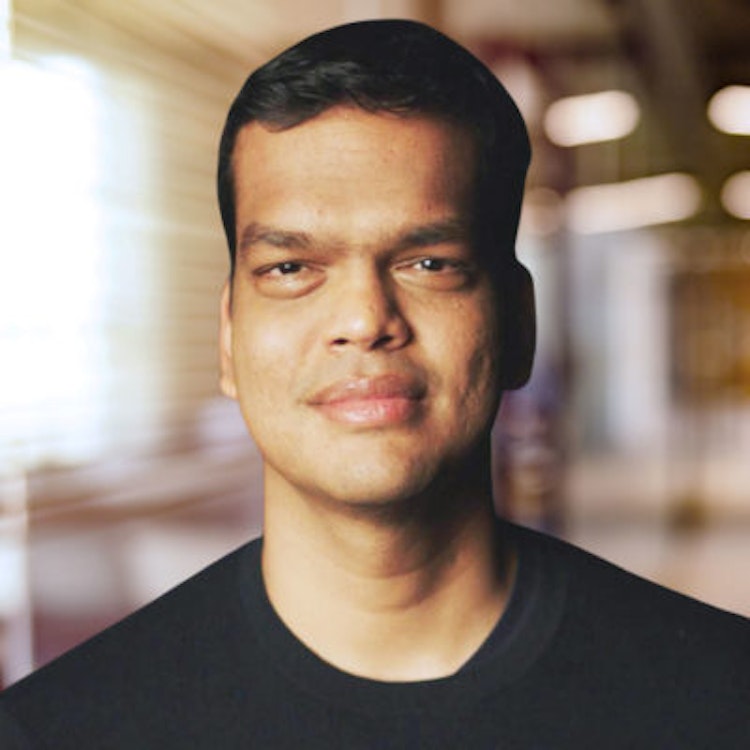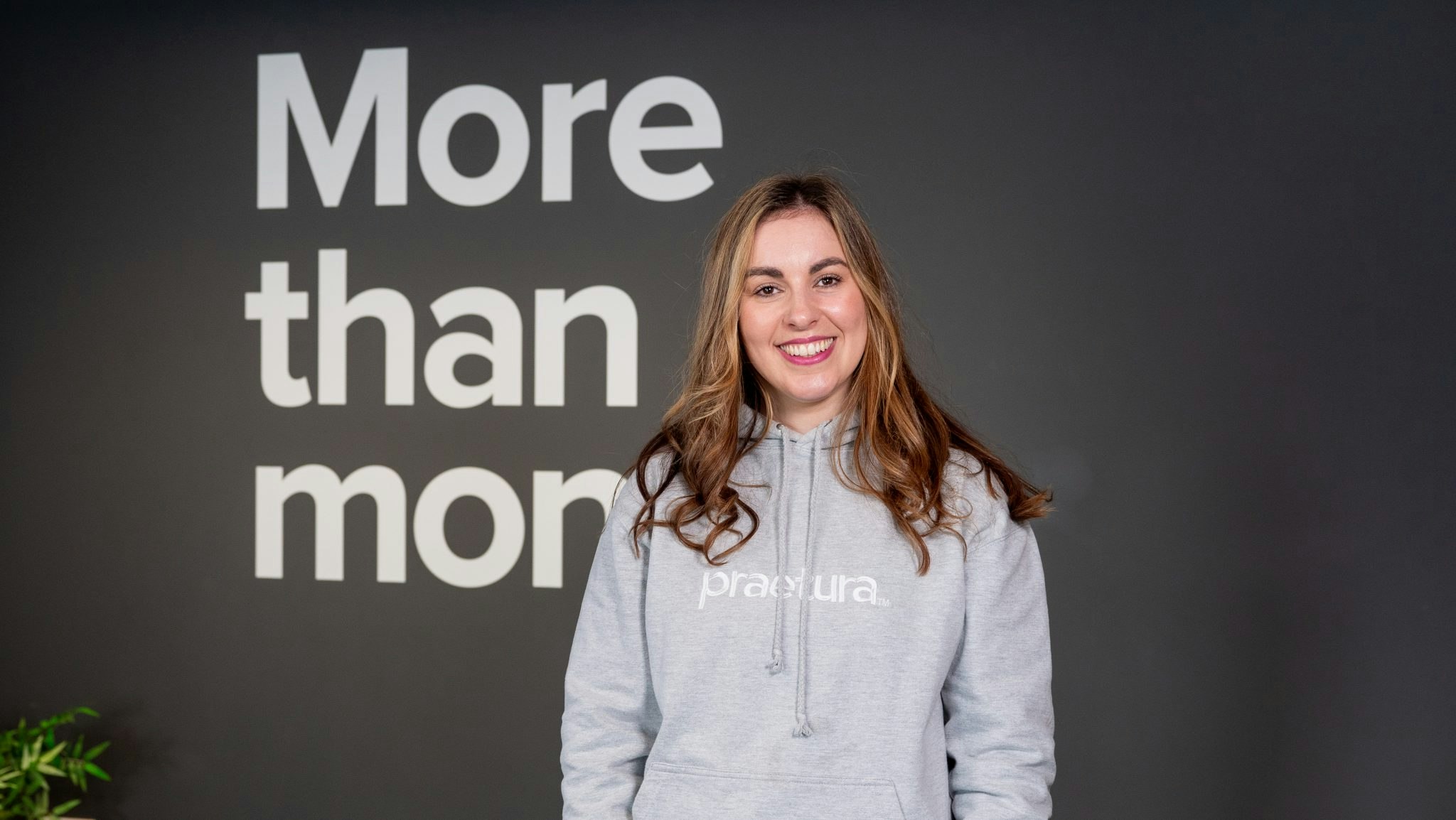Andreessen Horowitz is one of the world’s best-known — and biggest — VC firms, with over $35bn in assets under management, over 500 employees and a portfolio including Airbnb, GitHub, Instacart, Instagram, Lyft, Slack and Wise.
But for a long time it merely dabbled in Europe.
So it was big news last year when the firm announced it was opening a London office — its first non-US office — and general partner Sriram Krishnan was moving to the UK to run it.
The London team plans to invest primarily in crypto and Web3 — and is today announcing the 25 startups joining the latest cohort of its crypto startup accelerator, which will this time be held in the UK. Of the startups, 12% are from continental Europe while 25% are from the UK — and founders from all over the world have moved to London to participate in the programme.
Krishnan — whose first job in tech was at Microsoft — has led product teams at Facebook, Snap and Twitter. He joined us on the latest episode of the Sifted podcast to talk about the accelerator, Europe’s crypto prospects, what he’s learning about the continent since his move over from Silicon Valley and the attributes of great CEOs.
Read on for lightly edited highlights of our conversation — or listen to the full episode here.
Where is the European crypto market at now?
Andreessen Horowitz has been investing in crypto for close to a decade — and so we’ve learned that crypto always goes in cycles. There is a bull cycle, where you get a price run up, and you get a lot of developers building interesting applications, and then there is a bear market — a crypto winter, as some people might say — where you see a pullback.
There’s been a pullback, in prices and activity, over the last year, but now we’re starting to see a lot of people start building things again.
What are the startups joining the crypto accelerator working on?
We’ve selected 25 companies which are all going to be based here in London for a couple of months. They cover a wide range of areas — a lot of them are working on crypto infrastructure, others are working on decentralised social media, and others on the app layer — but they’re all in the earliest stages of building an application. Around 25% of the companies are British, from all over the UK.
What is it about the UK that makes it a welcoming place for crypto now?
We believe the UK has the potential to be a real Web3 leader. People are very excited right now; I tell them of all the amazing companies I’m meeting and the great talent in the university system here. And I’m not talking about just Oxford and Cambridge — I’m talking about talent from all over the UK, from Bristol and Brighton and Edinburgh.
The second thing you need, after talent, is the regulatory environment. One which prioritises the rules of the road for innovation and entrepreneurship, and on the crypto side, consumer protection. And last year we had some very heartening discussions with various policymakers and the government here which led us to go, ‘OK, the UK really wants to be a Web3 innovation hub, they have all the right ingredients, and they’ve taken some of the first steps to bring that to reality’.
So we opened up an office, I flew out here, bought a house, found a school for my kids and we announced that we’re going to do the crypto startup accelerator here. So we’re all-in on the UK.
Which areas of crypto get you most excited?
As a firm, we cover all of crypto. But for me personally, my journey to crypto has a very specific path. I grew up on a lot of open source; without open source, I wouldn’t be here talking to you, I would be in some remote part of India with none of these opportunities. Part of the open-source promise was that you could be anybody in the world and you could start building things without needing any permission. And somehow we have moved away from that era of the internet.
I don’t mean to just criticise Big Tech — obviously I was a part of it for a long period of time — but I don’t think we want an internet which is run by two or three companies.
When I think about what gets me excited about crypto and decentralisation it’s that question: how do we bring back that ethos of the original internet, where anybody could go build things without needing an API key?
And this leads to several areas. For example, social media. One company we’re an investor in, Farcaster, is a decentralised social media company. The magical thing about it is that you don’t need anybody’s permission to build on top of it.
Another area is AI. We’re investors in a company called Gensyn, here in the UK. And they’re working on a kind of technology where everybody can help train the next generation of models and participate and be incentivised for it in a very, very fascinating way.
What’s surprised you about the European ecosystem so far?
That’s there’s amazing talent, and maybe in ways that Silicon Valley doesn’t really recognise. And I’m not just talking about London. I’ve been on the train all over the UK and there are just amazing builders and entrepreneurs out there — and they are on a par with anybody else in the world. They are ambitious, and I want to go work with them.
And what do you make of the European VC scene?
I haven’t got to spend a lot of time with them. We are really focused on what we can bring to the table. I spend all my time here just focused on company building, and the founders here, and not so much of the rest of the VC ecosystem.
What do great founders focus on, and not focus on?
The great founders focus on the details. They look at every pixel, every piece of code, they know every single thing. They focus on being urgent: there is no great founder I know who is like, ‘Let’s have the follow up meeting in two weeks’. They’re like, ‘Let’s have the follow up meeting tomorrow, let’s move as fast as we can’.
And it’s not just the founders I work with — it’s also the founders I used to work for, like Mark Zuckerberg, or that I’ve gotten to spend time with, like Elon Musk.
The other is an unyielding vision of the world they want to create, and how to make it happen, and maybe an almost irrational belief.
Things they don’t care about? What other VCs think, and the noise of social media and the press. I think the great founders know that if you're building something amazing, you're going to take a bunch of arrows in your back. And they know to kind of tune out the noise, and really, really focus in on the signal.
Do you think if a founder spends too much time on stage at events, talking to journalists, posting on LinkedIn, that’s a bad sign?
I think the best founders are focused on how to make this company successful — and they're always looking at all things through that lens. Sometimes that means talking to the media. Sometimes that means spending time on a factory floor trying to make sure your cars come out on time. Sometimes that means engaging on Twitter, sometimes that means getting on a plane and going on a fundraising trip.
I think it’s very reductive to say people shouldn’t focus on the brand, or spend too much time on social media. I don’t think it’s ever as simple as that. It’s always about: is this serving a cause?
What do the teams around great founders look like?
I think micromanagement gets a bad rap and is underrated. The image of micromanagers is that they're in the detail, they don't let you do your job, they're over your shoulder looking at every single thing. But that's not reality.
I think what happens is the great CEOs have a pulse on every single thing, right? And that lets them see the big picture. They know, for example, when product is behind the roadmap, or that someone in sales is selling something they shouldn't be. They know when some supply chain is messed up; they see the bigger picture. And the only way to do that is if you are in the details.
I have never seen a great founder who just delegates everything. It’s just impossible. Unless you’re very in the details, I don’t think you’re gonna succeed.
If I was listening to this as a founder, I’d imagine I’d be thinking: How the hell could I have enough hours in the day to do all of that?
That’s the job. Great founders just love this stuff. I will bet you a lot of money that if you call up Zuckerberg right now and you said, ‘OK, what do you think of all the product launches from TikTok in the past six months?’ He’s going to reload every single one and tell you what is good or bad about each one off the top of this head. The people just love this — they’re in the details. They honestly can’t stop themselves.
You need to be obsessed with the product, with building things, with recruiting — that is what you do every single day. And if you’re not doing that, or if you don’t find yourself doing that, you should not be doing this.
Listen to the full episode of Startup Europe — The Sifted Podcast here.



